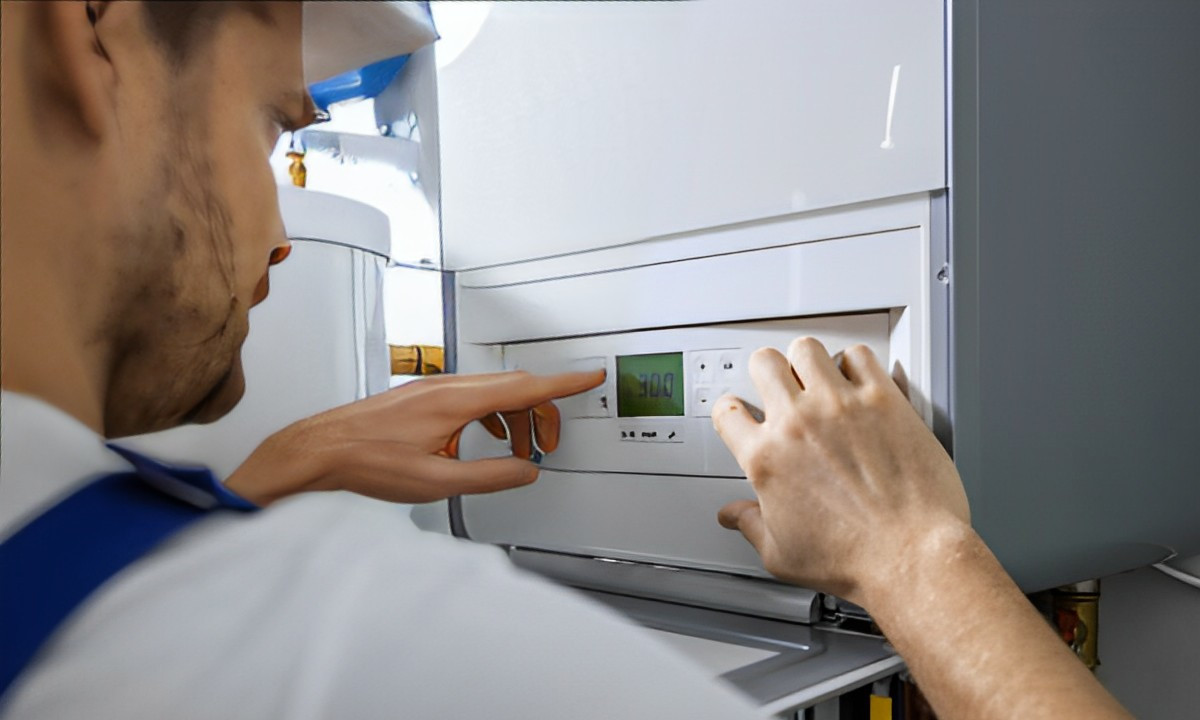The UK Government’s Gas Boiler Ban for 2025: Why Boilers are Being Phased Out and What it Means for the Future of Heating
The UK government has announced ambitious plans to tackle climate change by implementing a ban on gas boilers in new homes from 2025. This move is part of the government’s strategy to reduce carbon emissions and transition to greener heating options. In this article, we will explore the details of the gas boiler ban, its implications, and alternative heating options for the future.
What is the Gas Boiler Ban 2025?
The Gas Boiler Ban 2025 is a policy introduced by the UK government to phase out gas boilers in new homes by 2025. The goal is to reduce carbon emissions and transition to more sustainable and energy-efficient heating systems. Gas boilers are a significant source of greenhouse gas emissions as they burn fossil fuels, contributing to climate change. The ban aims to accelerate the adoption of greener alternatives, such as heat pumps and hydrogen boilers, to reduce the country’s carbon footprint.
Implications of the Gas Boiler Ban
The gas boiler ban will have significant implications for the construction and heating industries, as well as homeowners and developers. Here are some key implications:
- Shift towards greener alternatives: The ban will drive the adoption of alternative heating technologies such as heat pumps and hydrogen boilers. Heat pumps are electric devices that extract heat from the air or ground and use it to warm homes, while hydrogen boilers burn hydrogen gas, which produces only water as a byproduct. These technologies are more sustainable and have lower carbon emissions compared to gas boilers.
- Increased construction costs: Developers and builders will need to invest in new technologies and retrain their workforce to install and maintain alternative heating systems, which could result in increased construction costs. However, the long-term savings on energy bills and reduced carbon taxes may offset these initial costs.
- Retrofitting existing homes: The ban does not apply to existing homes, but the government encourages homeowners to consider upgrading to greener heating options. Retrofitting existing homes with heat pumps or hydrogen boilers may require modifications to the building’s infrastructure, which could be costly.
- Energy efficiency requirements: The gas boiler ban is part of a broader strategy to improve the energy efficiency of buildings. New homes will need to meet higher energy efficiency standards, which may involve better insulation, improved ventilation, and the use of renewable energy sources.
Why are Gas Boilers Being Banned?
The ban on gas boilers in new homes by 2025 is driven by several reasons, primarily aimed at reducing carbon emissions and mitigating climate change. Here are some key reasons why gas boilers are being banned:
- Carbon emissions: Gas boilers are a significant source of carbon emissions as they burn fossil fuels, contributing to greenhouse gas emissions and climate change. The UK has set ambitious targets to achieve net zero carbon emissions by 2050 as part of its commitment to combatting climate change. Phasing out gas boilers is seen as a crucial step in reducing carbon emissions and transitioning to more sustainable heating options.
- Energy efficiency: Gas boilers are not as energy-efficient as alternative heating technologies such as heat pumps or hydrogen boilers. Heat pumps, for example, can provide up to three units of heat for every unit of electricity used, making them highly energy-efficient. Gas boilers, on the other hand, can have lower efficiency levels, leading to wasted energy and increased carbon emissions. The ban on gas boilers aims to encourage the use of more energy-efficient heating options.
- Renewable energy sources: The ban on gas boilers aligns with the UK government’s commitment to increasing the use of renewable energy sources. Heat pumps, hydrogen boilers, and biomass boilers, for example, can all be powered by renewable energy sources, such as electricity from renewable grids or biomass fuel from sustainable forestry practices. This promotes the use of clean, renewable energy and reduces reliance on fossil fuels.
- Future-proofing: The ban on gas boilers is also aimed at future-proofing the UK’s heating systems. As fossil fuel reserves are finite and depleting, transitioning to alternative heating technologies that are based on renewable energy sources or hydrogen, which can be produced through renewable methods, ensures a more sustainable and resilient heating system for the future. This helps to reduce the country’s dependence on fossil fuels and promotes long-term sustainability.
Alternative Heating Options
As gas boilers are phased out, alternative heating options will become more popular. Here are some of the alternative heating options that are gaining traction in the UK:
- Heat pumps: Heat pumps are considered one of the most promising alternatives to gas boilers. They use electricity to extract heat from the air or ground and transfer it into the home. Heat pumps can be used for both heating and cooling, and they are highly energy efficient, producing fewer carbon emissions compared to gas boilers. However, they require a higher upfront investment and may need modifications to the building’s infrastructure.
- Hydrogen boilers: Hydrogen boilers are another potential alternative to gas boilers. They burn hydrogen gas, which produces only water as a byproduct. Hydrogen is considered a clean and renewable energy source, and hydrogen boilers have the potential to significantly reduce carbon emissions. However, the production and distribution of hydrogen at scale are still in the early stages, and there are challenges to overcome before hydrogen boilers can become widely available.
- Biomass boilers: Biomass boilers burn organic materials such as wood chips, pellets, or logs to produce heat. Biomass is considered a renewable energy source, as it can be replenished through forestry and agricultural practices. Biomass boilers have lower carbon emissions compared to gas boilers, but they require a steady supply of biomass fuel and proper maintenance to ensure efficient operation.
Conclusion
The UK government’s gas boiler ban for 2025 is a significant step towards reducing carbon emissions and transitioning to more sustainable heating options. The ban is driven by the need to combat climate change, improve energy efficiency, promote renewable energy sources, and future-proof the country’s heating systems. While the ban may have implications for the construction and heating industries, it presents opportunities for the adoption of alternative heating technologies such as heat pumps, hydrogen boilers, biomass boilers, and solar thermal systems. Homeowners, builders, and developers should prepare for the upcoming changes and explore greener heating options to contribute to a more sustainable future.




